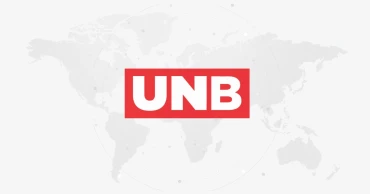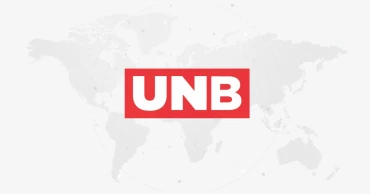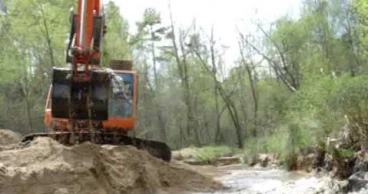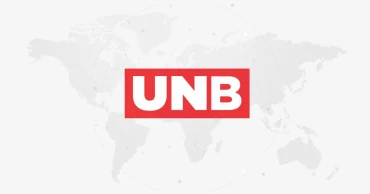citizens
The cyber gulag: How Russia tracks, censors and controls its citizens
When Yekaterina Maksimova can't afford to be late, the journalist and activist avoids taking the Moscow subway, even though it's probably the most efficient route.
That's because she's been detained five times in the past year, thanks to the system's pervasive security cameras with facial recognition. She says police would tell her the cameras "reacted" to her — although they often seemed not to understand why, and would let her go after a few hours.
"It seems like I'm in some kind of a database," says Maksimova, who was previously arrested twice: in 2019 after taking part in a demonstration in Moscow and in 2020 over her environmental activism.
For many Russians like her, it has become increasingly hard to evade the scrutiny of the authorities, with the government actively monitoring social media accounts and using surveillance cameras against activists.
Even an online platform once praised by users for easily navigating bureaucratic tasks is being used as a tool of control: Authorities plan to use it to serve military summonses, thus thwarting a popular tactic by draft evaders of avoiding being handed the military recruitment paperwork in person.
Rights advocates say that Russia under President Vladimir Putin has harnessed digital technology to track, censor and control the population, building what some call a "cyber gulag" — a dark reference to the labor camps that held political prisoners in Soviet times.
It's new territory, even for a nation with a long history of spying on its citizens.
"The Kremlin has indeed become the beneficiary of digitalization and is using all opportunities for state propaganda, for surveilling people, for de-anonymizing internet users," said Sarkis Darbinyan, head of legal practice at Roskomsvoboda, a Russian internet freedom group the Kremlin deems a "foreign agent."
RISING ONLINE CENSORSHIP AND PROSECUTIONS
The Kremlin's seeming indifference about digital monitoring appeared to change after 2011-12 mass protests were coordinated online, prompting authorities to tighten internet controls.
Some regulations allowed them to block websites; others mandated that cellphone operators and internet providers store call records and messages, sharing the information with security services if needed. Authorities pressured companies like Google, Apple and Facebook to store user data on Russian servers, to no avail, and announced plans to build a "sovereign internet" that could be cut off from the rest of the world.
Many experts initially dismissed these efforts as futile, and some still seem ineffective. Russia's measures might amount to a picket fence compared to China's Great Firewall, but the Kremlin online crackdown has gained momentum.
After Russia invaded Ukraine in February 2022, online censorship and prosecutions for social media posts and comments spiked so much that it broke all existing records.
According to Net Freedoms, a prominent internet rights group, more than 610,000 web pages were blocked or removed by authorities in 2022 -– the highest annual total in 15 years — and 779 people faced criminal charges over online comments and posts, also a record.
A major factor was a law, adopted a week after the invasion, that effectively criminalizes antiwar sentiment, said Net Freedoms head Damir Gainutdinov. It outlaws "spreading false information" about or "discrediting" the army.
Human Rights Watch cited another 2022 law allowing authorities "to extrajudicially close mass media outlets and block online content for disseminating 'false information' about the conduct of Russian Armed Forces or other state bodies abroad or for disseminating calls for sanctions on Russia."
SOCIAL MEDIA USERS 'SHOULDN'T FEEL SAFE'
Harsher anti-extremism laws adopted in 2014 targeted social media users and online speech, leading to hundreds of criminal cases over posts, likes and shares. Most involved users of the popular Russian social media platform VKontakte, which reportedly cooperates with authorities.
As the crackdown widened, authorities also targeted Facebook, Twitter, Instagram and Telegram. About a week after the invasion, Facebook, Instagram and Twitter were blocked in Russia, but users of the platforms were still prosecuted.
Marina Novikova, 65, was convicted this month in the Siberian city of Seversk of "spreading false information" about the army for antiwar Telegram posts, fining her the equivalent of over $12,400. A Moscow court last week sentenced opposition activist Mikhail Kriger to seven years in prison for Facebook comments in which he expressed a desire "to hang" Putin. Famous blogger Nika Belotserkovskaya, who lives in France, received a nine-year prison term in absentia for Instagram posts about the war that the authorities claimed spread "fakes" about the army.
"Users of any social media platform shouldn't feel safe," Gainutdinov said.
Rights advocates worry that online censorship is about to expand drastically via artificial intelligence systems to monitor social media and websites for content deemed illicit.
In February, the government's media regulator Roskomnadzor said it was launching Oculus — an AI system that looks for banned content in online photos and videos, and can analyze more than 200,000 images a day, compared with about 200 a day by humans. Two other AI systems in the works will search text materials.
In February, the newspaper Vedomosti quoted an unidentified Roskomnadzor official as lamenting the "unprecedented amounts and speed of spreading of fakes" about the war. The official also cited extremist remarks, calls for protests and "LGBT propaganda" to be among banned content the new systems will identify.
Activists say it's hard to know if the new systems are operating and their effectiveness. Darbinyan, of the internet freedom group, describes it as "horrible stuff," leading to "more censorship," amid a total lack of transparency as to how the systems would work and be regulated.
Authorities could also be working on a system of bots that collect information from social media pages, messenger apps and closed online communities, according to the Belarusian hacktivist group Cyberpartisans, which obtained documents of a subsidiary of Roskomnadzor.
Cyberpartisans coordinator Yuliana Shametavets told AP the bots are expected to infiltrate Russian-language social media groups for surveillance and propaganda.
"Now it's common to laugh at the Russians, to say that they have old weapons and don't know how to fight, but the Kremlin is great at disinformation campaigns and there are high-class IT experts who create extremely effective and very dangerous products," she said.
Government regulator Roskomnadzor did not respond to a request for comment.
EYES ON — AND UNDER — THE STREETS
In 2017-18, Moscow authorities rolled out street cameras enabled by facial recognition technology.
During the COVID-19 pandemic, authorities were able to trace and fine those violating lockdowns.
Vedomosti reported in 2020 that schools would get cameras linked to a facial recognition system dubbed "Orwell," for the British writer of the dystopian novel "1984," with his all-seeing character, "Big Brother."
When protests over the imprisonment of opposition leader Alexei Navalny erupted in 2021, the system was used to find and detain those attending demonstrations, sometimes weeks later. After Putin announced a partial mobilization for Ukraine last year, it apparently helped officials round up draft evaders.
A man who was stopped on the Moscow subway after failing to comply with a mobilization summons said police told him the facial recognition system tracked him down, according to his wife, who spoke to AP on condition of anonymity because she feared retaliation.
In 2022, "Russian authorities expanded their control over people's biometric data, including by collecting such data from banks, and using facial recognition technology to surveil and persecute activists," Human Rights Watch reported this year.
Maksimova, the activist who repeatedly gets stopped on the subway, filed a lawsuit contesting the detentions, but lost. Authorities argued that because she had prior arrests, police had the right to detain her for a "cautionary conversation" — in which officers explain a citizen's "moral and legal responsibilities."
Maksimova says officials refused to explain why she was in their surveillance databases, calling it a state secret. She and her lawyer are appealing the court ruling.
There are 250,000 surveillance cameras in Moscow enabled by the software — at entrances to residential buildings, in public transportation and on the streets, Darbinyan said. Similar systems are in St. Petersburg and other large cities, like Novosibirsk and Kazan, he said.
He believed the authorities want to build "a web of cameras around the entire country. It sounds like a daunting task, but there are possibilities and funds there to do it."
'TOTAL DIGITAL SURVEILLANCE'
Russia's efforts often draw comparisons with China, where authorities use digital surveillance on a vast scale. Chinese cities are blanketed by millions of cameras that recognize faces, body shapes and how people walk to identify them. Sensitive individuals are routinely tracked, either by cameras or via their cellphones, email and social media accounts to stifle any dissent.
The Kremlin seems to want to pursue a similar path. In November, Putin ordered the government to create an online register of those eligible for military service after efforts to mobilize 300,000 men to fight in Ukraine revealed that enlistment records were in serious disarray.
The register, promised to be ready by fall, will collect all kinds of data, "from outpatient clinics to courts to tax offices and election commissions," political analyst Tatyana Stanovaya said in a commentary for the Carnegie Endowment for International Peace.
That will let authorities serve draft summonses electronically via a government website used to apply for official documents, like passports or deeds. Once a summons appears online, recipients cannot leave Russia. Other restrictions -– like suspension of a driver's license or a ban on buying and selling property -– are imposed if they don't comply with the summons within 20 days, whether they saw it or not.
Stanovaya believes these restrictions could spread to other aspects of Russian life, with the government "building a state system of total digital surveillance, coercion and punishment." A December law mandates that taxi companies share their databases with the successor agency of the Soviet KGB, giving it access to travelers' dates, destinations and payment.
"The cyber gulag, which was actively talked about during the pandemic, is now taking its real shape," Stanovaya wrote.
2 years ago
Grow up as worthy citizens: PM to school children
Prime Minister Sheikh Hasina on Tuesday asked the primary school students to groom themselves as the worthy citizens of the country by paying attention to study, sports and cultural activities.
“The sports are the means of physical exercise. Sports bring mental strength and make minds more liberal… Alongside the sports, you will have to pay attention to study as well. You will have to prepare yourselves as the worthy citizens of an independent country,” she said.
The premier was addressing the prize distribution ceremony of Bangabandhu Gold Cup Primary School Football Tournament-2022 and Bangamata Sheikh Fazilatunnesa Mujib Gold Cup Primary School Football Tournament-2022 at the Army Stadium in the capital.
She hoped that the children of Bangladesh will display excellent performance in every sector including study, sports and cultural practices. She also hoped they will bring dignity for the country, joining in the international competitions.
“Today we’ve built the country as Digital Bangladesh. But we’ll build the country as Smart Bangladesh in the future. You will be the main strength of Smart Bangladesh,” she said.
Hasina asked the small children to maintain a disciplined life always, obey the guardian, teachers and parents, maintain a good term with their peers and behave well with disabled persons including autistic ones.
“You all will have to prepare yourselves with a human quality,” she said.
The PM stressed the need for larger sports competitions like inter-school, inter-upazila and inter-district, inter-college and inter-university competitions in the country.
She at the same time put emphasis on cultural practices, reading storybooks, history, science and technology books alongside the textbooks.
“You’ll have to prepare yourselves as a whole. Keep in mind from now on that you will be the most qualified and will build yourselves as the worthiest citizens,” she said.
Earlier, the premier enjoyed the second half of the grand final held between Nalma Government Primary School (Ghatail, Tangail) of Dhaka Division and Bancharampur Model Government Primary School (Brahmanbaria) of Chittagong Division.
Bancharampur Model Government Primary School clinched the title of Bangamata Gold Cup-2022 defeating Nalma Government Primary School in the grand final match.
Purba Panchapukur Primary Government School (Nilphamari Sadar) of Rangpur Division won the title of Bangabandhu Gold Cup-2022 beating Binodpur Collegepara Govt Primary School (Rajbari Sadar) of Dhaka Division in the grand final match.
A total of 11,13,993 boys from 65,529 schools and 11,13,976 girls from 65,528 schools participated in the countrywide tournaments-2022, arranged by the Primary and Mass Education Ministry.
The Prime Minister distributed prizes and medals among the members of the champion and runner up teams of the two tournaments.
In the Bangabandhu Gold Cup Tournament, highest scorer (4 goals) Jahim and best player Monirul Islam, both from Purba Panchapukur Primary School, received the golden boot and the golden ball alongside prize money respectively from the premier.
In the Bangamata Gold Cup Tournament, highest scorer Nur Nahar Akter of Bancharampur Model Primary School and Rumi of Nalma Primary School received the golden boot and the golden ball along with prize money respectively from Sheikh Hasina.
State Minister for Primary and Mass Education Md Zakir Hossen and Primary and Mass Education Secretary Farid Ahmed spoke at the function.
Noting that she is a member of a football family, Hasina said her grandfather, father and brothers –Sheikh Kamal and Sheikh Jamal-- used to play football. “Today’s modern football in Bangladesh is the contribution of Sheikh Kamal,” she said.
She said Abahani Krira Chakra was developed in the hand of Sheikh Kamal. “He had contributed to the development of the sports in this country,” she said, adding that Kamal and Jamal were involved in all sorts of sports including football and hockey.
The PM said Kamal’s wife Sultana was a sports personality and Jamal’s wife Rosy was also an expert in sports.
“So, I am a person of a football family. My grandchildren love to play football as well and they play football. Sheikh Rehana’s grandchildren also play football,” she said.
Coming to power in 2009, her government started the development of sports from the grassroots and introduced inter-school sports competitions, she added.
The PM hoped that more outstanding players would come out from the primary school football competitions and brighten the image of Bangladesh through their performance in the international competitions.
“We perhaps will play in the world cup one day. The world cup players will be prepared gradually here and come out,” she said.
The premier congratulated the champions and the runner-ups in the tournaments.
2 years ago
13 Citizens demand transparency in silt removal, river digging
Thirteen citizens from different professions on Wednesday demanded an end to irregularities and corruption in the regular removal of silt to keep the navigability on inland waterways for plying water vessels normally throughout the year.
They also demanded transparency and accountability in the ongoing river digging projects to rescue extinct rivers and waterways and to stop wastage of hundreds of crores of the state fund.
They made this demand to authorities concerned in a joint statement.
The government has been providing sufficient allocation to BIWTA every year for regular silt removal of waterways, the statement said. However, due to navigability crisis, the movement of passenger and cargo ships on important waterways including Dhaka-Barishal is severely disrupted.
As a result, some launch owners have already closed their business. Besides, many more vessel owners are thinking to close their business due to anger and frustration, it said.
Citizens complain that several mega projects have been undertaken to dig large rivers to restore extinct waterways and rivers by the direction of the Prime Minister, ‘But, in most cases, the desired success has not been achieved,’ they said.
According to the statement, the Executive Committee of the National Economic Council (ECNEC) on October 2, 2018, approved the ``Navigability Development and Restoration of the Old Brahmaputra, Dharla, Tulai and Punarbhaba Rivers'' project at a cost of Tk 4,371 crore.
Although 70 percent of the allocated money has already been spent, only 50 percent of the project work has been completed in four long years.
In the statement, 13 citizens complained that public money is being wasted due to lack of transparency and accountability. In order to stop these irregularities and corruption, they strongly demanded that information on silt removal in capital and maintenance dredging and river digging through mega project be regularly published in the media.
The signatories of the statement are- the former director general of water resources planning organisation and prominent environmentalist engineer M. Inamul Haque, Vice President of Consumer Association of Bangladesh (CAB) SM Najer Hossain, prominent children's organiser and heroic freedom fighter Nurur Rahman Selim, Chief Executive of Nagorik Uddog Zakir Hossain, General Secretary of Udichi Shilpi Gosthi Amit Ranjan Dey, Senior Vice President of Begombazar-Moulbhibazar Bonik Samity Haji Mohammad Shahid Mia, Member Secretary of Safe Waterway Implementation Movement Aminur Rasul Babul, Senior marine engineer Abdul Hamid, the executive director of Dwip Unnayan Sangstha the heroic freedom fighter Rafiqul Alam, the executive director of Poverty Immunisation Assistance Center for Everywhere (PEACE) Ifma Hussain, the president of Alokit Garments Sramik Federation Bappidev Borman, central coordinator of Janalok Rafiqul Islam Sujan and Purana Dhaka Nagorik Uddog president Nazim Uddin.
2 years ago
US Embassy issues alert for its citizens in Bangladesh
The US Embassy in Bangladesh on Wednesday issued an alert for its citizens living here asking them to avoid demonstrations and exercise caution in the vicinity of any large gatherings.
“U.S. citizens should practice vigilance and remember that demonstrations intended to be peaceful can turn confrontational and escalate into violence. Review personal security plans; remain aware of your surroundings, including local events; and monitor local news stations for updates,“ it said in a statement.
The next general election in Bangladesh is anticipated to be held before or during January 2024, and political party rallies and other election-related activities have already commenced, it added.
Read more: US Trade Show in Dhaka to demonstrate “commitment to support Bangladesh”
“Political rallies and demonstrations may be held with increasing frequency or intensity as the general election draws nearer. Two of Bangladesh’s largest political parties have announced rallies in different areas of Dhaka for December 10, 2022, “ said the statement.
3 years ago
Citizens’ committee formed to probe MV Abhijan-10 tragedy
A 17-member eminent citizen inquiry committee has been formed to find out the real cause of the fire that caused so many casualties in the MV Abhijan-10 passenger launch, identify those responsible and make necessary recommendations for building a risk-free, people-friendly marine communication system.
Fifteen social organizations, including Paribesh Bachao Andalan (PABA), Nirapod Naupath Bastobayon Andolon (Safe Waterways Implementation Movement) and National Committee for Protection of Waterways, Roads and Railways, have jointly formed the committee involving concerned experts, representatives of different classes and professions.
READ: Probe committee formed over Chairman Bari fire
PABA's chairman Abu Naser Khan formally announced the formation of the committee at a press conference held at its office at Kalabagan in the city on Tuesday. The committee was asked to submit its report with recommendations within the next three weeks, he said.
PABA Chairman Abu Naser Khan has been made the convener of the Citizen Inquiry Committee. Aminur Rasul Babul has been made member secretary of the Committee, while Ashish Kumar Dey, a journalist, writer and a shipping researcher, will act as chief coordinator of the committee.
READ: Committee formed to prevent accidents at industries
Bangladesh University of Engineering (BUET) Prof Dr Mir Tareq Ali, former director general of Water resources planning Engineer Enamul Haque and former chief naval engineer at V Ships in Glasgow, UK. Abdul Hamid.
4 years ago
23 noted citizens urge govt to let Khaleda go abroad for treatment
Twenty-three noted citizens on Wednesday urged the government to allow ailing Chairperson Khaleda Zia to go aboard for advanced medical treatment.In a statement, they also said if the government demonstrates a humane attitude towards Khaleda it will help create a better political culture in the country.“As per media reports, Khaleda Zia’s condition is now critical. She has long been suffering from various critical diseases while her condition has gradually deteriorated further after being infected with Coronavirus,” the statement reads.
READ: Khaleda’s treatment not possible in Bangladesh with foreign doctors: DAB
It said the BNP chief’s family has already requested the government to allow Khaleda to go abroad for her treatment. "We urge the government to consider this request cordially and give Khaleda Zia a scope to go aboard for treatment immediately.”Dr Zafrullah Chowdhury, Prof Kamal Ahmed, Prof Swapan Adnan, photographer Shahidul Alam, Prof Parveen Hasan, Prof Asif Nazrul and Prof Shahnaz Huda, human rights activists Shirin Haque, Nur Khan Liton, Rehnuma Ahmed, Hana Shams Ahmed and women leader Farida Akhtar are among the signatories to the statement.Khaleda, a 76-year-old former prime minister, has been receiving treatment at Evercare Hospital for various health complications since November 13.Her medical board members on Sunday said she immediately needs to go abroad for better treatment as she was diagnosed with liver cirrhosis.
READ: Govt is a barrier to Khaleda’s treatment abroad, not law: Fakhrul
On behalf of her family, Khaleda's younger brother, Shamim Iskander, submitted an application to the Home Ministry on November 11 urging the government to allow her to go abroad for better treatment.However, Law Minister Anisul Huq said the government will consider Khaleda Zia’s appeal if she submits a fresh petition after returning to jail.
4 years ago





.jpg)



